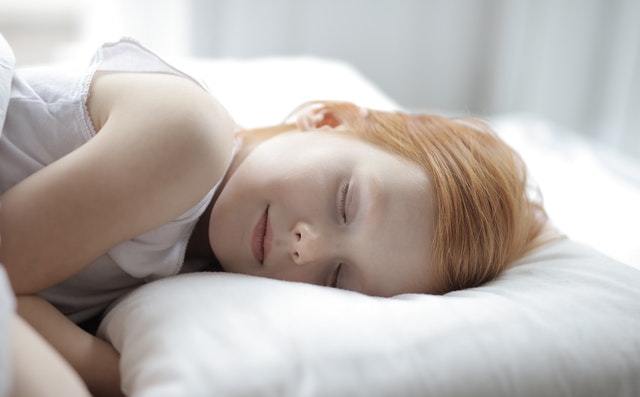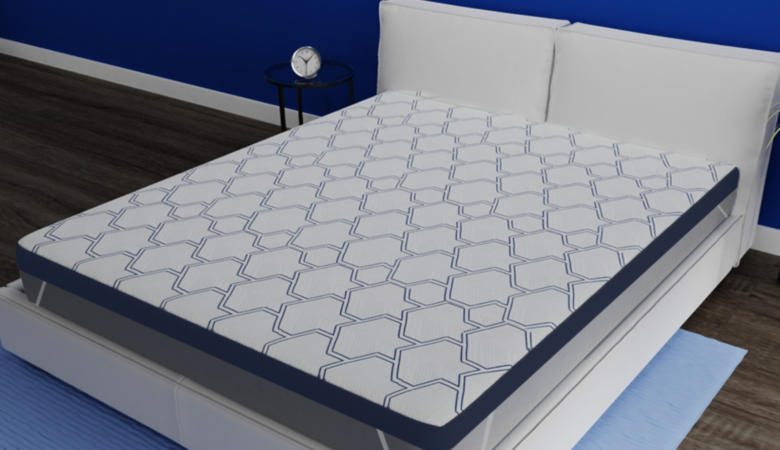You’re frustrated. You’re exhausted. Your child is already at school- and they’re still wetting the bed at midnight. You’ve tried limiting liquids after dinner. You’ve tried waking up your child in the middle of the night and making them to go to the washroom, sometimes twice a night as well. Still, no luck. This has not only disturbed your child’s sleep, it disturbs your sleep as well. Well, guess what? You aren’t alone.
Parents often worry about bedwetting in their children, an issue defined as “involuntary urination in children 5 years old or older.” But it is not uncommon at all. It happens with 25% of the children worldwide, maybe more, as not many studies have been performed in this area with a large amount of population.
Should you be worried?
Bed-wetting isn’t a high priority problem until your child is 7 years old. When your child is older than age 7 and still wetting the bed, you would possibly want to speak together with your child’s medical aid physician or a pediatric nephrologist or urologist. The underlying issue is typically a urinary bladder that’s not yet matured.
Bedwetting- how is it a problem?
That secrecy about bedwetting makes conditions no less easy for kids and adults alike. Ninety percent of kids think they’re the sole ones who wet the bed, which makes them feel even worse. There is a guilt attached to the situation. Yet, bedwetting children are not alone in this situation. Though children naturally gain nighttime bladder control, they do so at different ages.
Wet beds and mattresses leave bad feelings all around. Frustrated parents sometimes conclude a child is wetting the bed out of laziness. Kids worry there’s something wrong with them- especially when teasing siblings barge in. Fear of wetting the bed at a friend’s sleepover can create social awkwardness. For some, bedwetting is also an inevitable part of growing up, but it doesn’t need to be traumatic. Understanding bedwetting’s causes is a starter to address this common childhood problem.
The Bedwetting Gene
There’s no one single explanation for bed-wetting, but if you would like a simple target, look no farther than your DNA. The majority of bedwetting is inherited. For three out of four kids, either a parent or a close relative also wet the bed in their childhood. Most parents who had the identical problem communicate it to their kids, which is sweet of them, and you should try it too! It helps a child understand that they are not alone and it is completely okay.
Can bedwetting signals more serious issues?
Occasionally, bed-wetting may be a sign of something more significant, including:
- Sleep apnea – If a baby snores lots or otherwise shows any signs of sleep disorder, it is wise to investigate further. Otherwise, this isn’t a primary course of evaluation for a baby with bed-wetting issues.
- Urinary tract infections (UTIs) – A urine sample can detect these infections, which may be typical test doctors will order when bedwetting is a difficulty or is going on beyond the age of seven years.
- Diabetes – A urine sample may detect diabetes in children.
Sleeping tips for kids to control bedwetting
- Shift times for drinking: Increase fluid intake earlier during the day and reduce it later during the evening.
- Schedule bathroom breaks: Get your child on a daily urination schedule (every two to three hours) and right before bedtime.
- Be encouraging: Make your child feel good about progress by consistently rewarding successes.
- Eliminate bladder irritants: At night, start by eliminating caffeine (such as milk and cocoa). And if this doesn’t work, cut citrus juices, artificial flavorings, dyes (especially red), and sweeteners. Many parents don’t realize these can all irritate a child’s bladder.
- Avoid thirst overload: If schools allow, give your child a bottle so that they can drink steadily all day. This avoids excessive thirst after school.
- Consider if constipation could be a factor: Because the rectum is exactly behind the bladder, difficulties with constipation can present themselves as a bladder problem, especially in the dead of night. This affects about one-third of youngsters who wet the bed, though children are unlikely to spot or share information about constipation.
- Don’t wake children up to urinate: Randomly awakening a toddler at the hours of darkness and asking them to urinate on demand isn’t the solution, either. it’ll only cause more sleeplessness and frustration, for the child and you as well.
- An earlier bedtime: Sometimes children sleep deeply simply because they’re not getting enough hours of sleep.
- Cut back on screen time, especially before bedtime: Improving sleep hygiene and winding down at the end of the day can help their minds weigh down so that they can sleep better.
- Don’t resort to punishment: Getting angry at your child doesn’t help them learn. the method mustn’t involve conflict. Negative reinforcement rarely works with kids. Instead, try positive methods.
- Medications: not usually recommended. Although there are medications (including an artificial sort of a hormone) that may address bed-wetting, It is usually not recommended unless there are other severe problems.
Does your child want to learn?
Families often wonder if a toddler is bed wetting on purpose. But in reality, it’s typically not the parent’s fault neither is it their child’s fault. It is an issue that resolves on its own mostly. It’s also important to speak to your child to determine if there’s motivation to change the habit. If they’re motivated to change, a bed-wetting alarm is the best solution.
You can clip the alarm to the child’s underwear or place it on the mattress on the bed. Once the device detects any moisture, the alarm pops. But if the kid isn’t independently motivated, the alarm may not any benefit for the kid and will just further frustrate the family.
As the child gets older and has opportunities to travel to slumber parties and weekend trips, bedwetting can affect their confidence and social life. This may motivate the kid to resolve the matter and avoid feeling embarrassed.
How to keep your mattress safe
Give your mattress an added protection from specks of dust, allergens, and bedbugs with Livpure’s Waterproof Mattress Protector. Designed to keep your mattress safe from all types of liquids, such as accidental spills, and bodily fluids such as your children’s bedwetting disasters, the protector also absorbs natural moisture. The protector is made from 100% Rich Terry Cotton to give a fresh and natural feel to your body and maximum air permeability. When you cover your mattress with this protector, you do not have to worry about your mattress getting destroyed anymore. Let your children grow up and grow out of it naturally!
Conclusion
Bedwetting is nothing to be ashamed of- it is very important to have healthy communication with your children so that they don’t face guilt and social stigma. Healthy communication only will help them grow out of it, and if they don’t, do not be ashamed of taking them to a doctor to find any disorders at an early stage. Also, maintain hygiene to keep away from any diseases!








